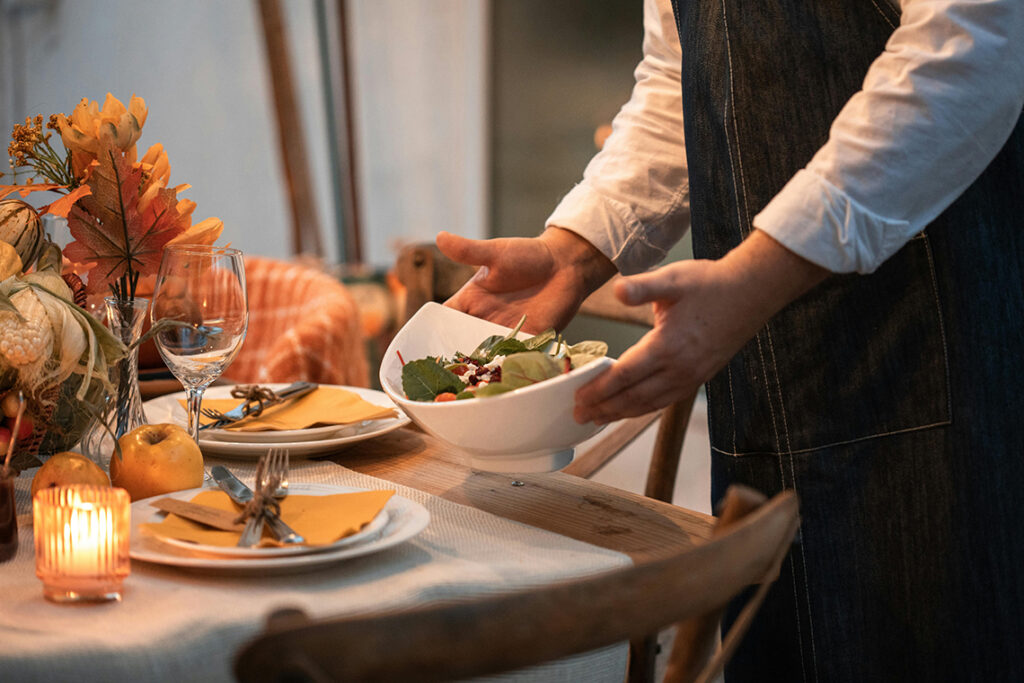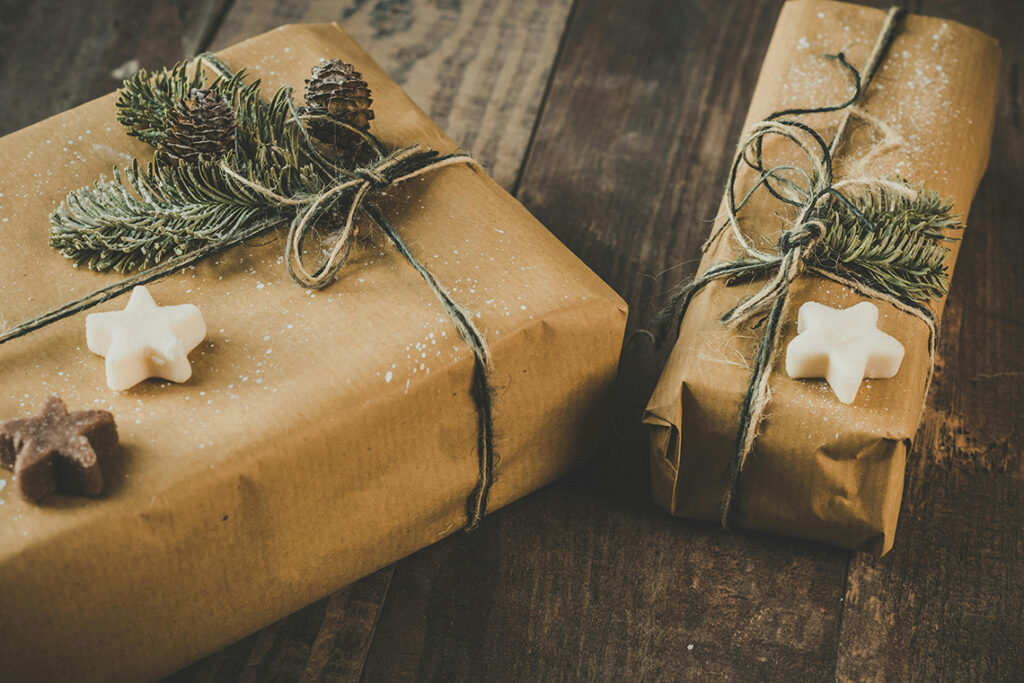Related Resources
For Havening Techniques®
Boundaries: What are they? Why do they matter? And how healthy are yours?
We can all agree that setting boundaries can be tough–but they’re also crucial to building healthy relationships. Setting good boundaries will promote positive, comfortable interactions with others which will benefit you AND the people in your life. While it may seem tough to set them at first, boundaries are really a win-win!
In this informational video, Dr. Kate walks you through a quick do-it-yourself exercise to check on your boundaries and make sure they’re serving you properly. If you like this video, be sure to subscribe–we’ll be posting more information about boundaries soon!
A Healing Meditation for Learning From Past Holidays
In this guided meditation, Dr. Kate Truitt begins by inviting us to welcome in the soothing havening touch to deepen the experience and support our mind and body in releasing any stressful encoded moments. She asks us to take gentle, mindful breaths to start the process as we close our eyes. She then asks us to float back upon past holidays, and see if a particular holiday comes to our attention. Once we’ve found that experience, she invites us to float back to it. What we’re connecting with has already happened, and it holds the answers as to why our mind and body have a particular reaction to this holiday.
A Guided Exercise for Mindful Communication
We all have moments where we reflect back on a conversation and wish we had said something differently. In this guided meditation Dr. Kate invites you to join her on a guided meditation that examines mindfulness as we speak to others. As humans are deeply social by nature, this is a skill we can all benefit from. Throughout the meditation, Dr. Kate will describe concepts and questions to ask yourself as you converse, which will help keep your interactions healthy, and hopefully even enjoyable.
Welcoming Self-Compassion into Your Holiday Season
Join Dr. Kate and Rebecca Turner to explore how to welcome self-compassion into your Holiday season. In this video you will learn two quick exercises to help you connect with your inherent sense of self-love, compassion, and caring and to share these experiences with the world around you.
A Guided Exercise for Finding a Smile
In this video, Dr. Kate Truitt guides us through an exercise for finding a smile. This guided exercise is adapted from Dr. Kate’s book “Healing in Your Hands: Self-Havening Exercises to Harness Neuroplasticity, Heal Traumatic Stress, and Build Resilience.”s.
Navigating Holiday Stress: A Guide to Setting Healthy Boundaries for a Joyful Season
By Dr. Kate Truitt
The holidays are often called “the most wonderful time of the year,” and for good reason. This season is filled with opportunities for joy, connection, and cherished traditions. Yet, as magical as it can be, the holidays also come with their own set of challenges. Packed schedules, family expectations, and financial pressures can leave us feeling stretched thin, overwhelmed, and disconnected from the peace and joy we long for.
This is where boundaries become a powerful ally. Boundaries are not walls that push people away; they are bridges to emotional balance and healthy relationships. They help us protect our time, energy, and well-being while allowing us to show up fully for the moments that matter most.
Why Boundaries Matter During the Holidays

Have you ever walked into a bustling holiday party and felt your chest tighten or your energy drain before the night even began? That’s your brain’s natural survival system kicking in. When we’re overwhelmed—whether it’s from packed schedules, family tensions, or endless to-do lists—our brain’s stress response can flip into overdrive.
This happens because of a part of the brain called the amygdala, which I like to call “Amy” is always scanning for potential threats. While this response is designed to keep us safe in emergencies, it doesn’t always know the difference between a real danger and the emotional stress of juggling too many commitments. Amy’s overactivation can lead us into fight, flight, freeze, or fawn mode, leaving us feeling irritable, avoidant, or drained.
This is why boundaries are so important. When we align our holiday activities with our personal values and needs, we create a roadmap that helps Amy calm down and feel safe. For example, if quality time with close family brings you joy, prioritize those moments. If certain events leave you feeling drained, it’s okay to politely decline. By making choices that honor your emotional and physical limits, you’re not just protecting your energy—you’re reinforcing self-respect and nurturing healthier relationships. And in this psychoeducation video about boundaries, I delve into why they are important in building healthy relationships while taking care of our own selves. This and other videos in this article may also be found linked in the sidebar with further information.
When we set boundaries, we’re telling ourselves, “I matter.” This simple yet powerful act fosters connection, not just with others, but with ourselves. It allows us to show up authentically, creating a holiday season that feels less like a marathon and more like a celebration of what truly matters.
Common Holiday Boundary Challenges
The holiday season is filled with opportunities for connection and celebration, but it can also bring a unique set of challenges that test our ability to maintain healthy boundaries. Here are some of the most common hurdles:
1. Overcommitting to Events and Obligations
Have you ever found yourself agreeing to back-to-back holiday parties, school events, and last-minute errands, only to feel completely burned out by mid-December? Overcommitting can leave little room for rest or spontaneity, turning the season of joy into a source of stress.
2. Managing Family Dynamics and Difficult Conversations
Holiday gatherings often mean reconnecting with family, which can bring warmth and joy—but also tension. Whether it’s navigating differing opinions or old conflicts resurfacing, family dynamics can make it hard to stay present and grounded during celebrations.
3. Balancing Time for Self-Care
It’s easy to put self-care on the back burner when demands from loved ones pile up. From baking cookies to finding the perfect gifts, many of us prioritize others’ happiness at the expense of our own well-being, leading to exhaustion and even resentment.
4. Financial Stress and Gift-Giving Pressures
The pressure to give extravagant gifts or keep up with others’ spending can make the holidays financially overwhelming. Struggling to stick to a budget often leaves us feeling anxious and disconnected from the true spirit of giving.
Recognizing these challenges is the first step toward addressing them. In the next sections, we’ll explore practical ways to set boundaries that keep these stressors in check while helping you create a holiday season that feels joyful and sustainable.
How To Set Healthy Boundaries During the Holidays

Setting boundaries during the holidays can feel challenging, but with a little preparation and self-awareness, you can create a season that supports your well-being. Here are some practical steps to help you navigate the holidays with clarity and calm:
1. Know Your Limits
Understanding your limits is the foundation of effective boundary setting.
- Use tools like the Emotions Thermometer to assess your stress levels and identify when you need to step back. This simple scale helps you tune into how you’re feeling and recognize when it’s time to prioritize your well-being .
- Reflect on past holiday experiences to pinpoint triggers or situations that left you feeling overwhelmed. This reflection can guide you in setting clearer boundaries this year.
Listen to a guided meditation designed to help you revisit past holidays with curiosity and compassion. This exercise can help you identify patterns, honor your feelings, and set intentions for a more balanced holiday season.
2. Communicate Clearly
Expressing your boundaries doesn’t have to feel uncomfortable. Polite, firm communication is key.
- Script your responses in advance to make saying “no” easier. For example:
- “I’d love to join, but I already have other commitments.”
- “Thank you for the invitation, but I need some quiet time to recharge.”
- Practice these conversations with a trusted friend or even in front of a mirror to build confidence.
I encourage you to practice this guided meditation to help you stay grounded and clear during boundary-setting conversations. This will help you express yourself with kindness and confidence.
3. Make a Plan
A little planning can go a long way in ensuring your holidays feel manageable and joyful.
- Prioritize events and people that bring you the most joy. Focus on quality over quantity when it comes to commitments.
- Create a “holiday balance schedule” that includes intentional downtime for rest and self-care. Scheduling relaxation is just as important as scheduling festivities.
By following these steps, you’ll be better equipped to maintain your energy and emotional wellness while still embracing the spirit of the season. Remember, boundaries are an act of self-love that allows you to show up as your best self for the people and moments that matter most.
Tips for Navigating Specific Scenarios

Even with the best intentions, certain holiday scenarios can test our boundaries. By approaching these situations with thoughtfulness and preparation, you can maintain your emotional balance and foster more meaningful connections.
1. Managing Family Expectations
Family gatherings can be filled with love and connection, but they can also bring challenges when expectations clash or unresolved tensions arise.
- Reframe disagreements as opportunities to connect: Instead of focusing on “winning” an argument, aim to understand the other person’s perspective and find common ground. This shift can help defuse tension and deepen relationships.
- Practice compassionate detachment: Remember, you’re not responsible for how others react. Stay grounded in your values and listen actively without taking things personally.
Use “I” statements: Express your feelings in a way that reduces blame. For example, say, “I feel overwhelmed when there are so many plans. Can we simplify this year?” instead of, “You’re making things too complicated.”
2. Handling Overcommitment
The desire to make everyone happy can lead to an overloaded schedule. But overcommitting often results in burnout, leaving little room for joy.
- Adopt a mantra like, “It’s okay to prioritize myself”: Remind yourself that your well-being matters just as much as anyone else’s.
- Limit commitments to one main event per day or week: Give yourself space to recharge between gatherings. A less packed schedule can make each celebration more enjoyable.
- Emphasize quality over quantity: Focus on meaningful connections rather than trying to be everywhere at once. A heartfelt conversation or quiet moment with a loved one often means more than attending multiple events.
3. Financial Boundaries
The pressure to give extravagant gifts or keep up with others’ spending can lead to unnecessary financial strain. Setting clear financial boundaries can alleviate this stress.
- Set a clear gift budget: Decide what you’re comfortable spending and communicate it openly with your family and friends. For example, suggest a Secret Santa exchange or a price limit for gifts.
- Explore creative alternatives: Homemade gifts, like baked goods or personalized crafts, can be just as meaningful as store-bought ones. Experience-based presents, such as planning a family outing or a shared activity, can create lasting memories without stretching your wallet.
By approaching these scenarios with intention and self-compassion, you can stay aligned with your values and create a holiday experience that feels balanced and fulfilling. In this conversation with Rebecca Turner, we explored how to welcome more self-compassion into the holiday season. Remember, the goal isn’t perfection—it’s connection and presence, both with yourself and those around you.
Maintaining Resilience
The holidays can be a wonderful time of connection and joy, but even with strong boundaries, the season may still bring its fair share of stress. Resilience is the key to navigating these ups and downs with grace, and the good news is that it’s a skill we can all strengthen.
The Role of Neuroplasticity in Resilience
Our brains have an incredible ability called neuroplasticity, which allows them to adapt and change based on our experiences and choices. This means that with intentional practices, we can train our minds to respond to stress with more calm and clarity. Every time you pause, reflect, or choose a compassionate response instead of reacting impulsively, you’re creating new neural pathways that support resilience. Over time, these pathways become stronger, making it easier to face challenges with confidence and balance.
Reinforce Self-Compassion During Tough Moments
The holidays often stir up feelings of guilt or conflict, especially when we prioritize our own needs or set firm boundaries. It’s important to meet these feelings with kindness rather than judgment.
- Use a gentle self-compassion mantra: When guilt creeps in, remind yourself, “I’m doing my best, and that’s enough,” or “It’s okay to take care of myself.”
- Embrace imperfections: Remember that it’s not about having a flawless holiday—it’s about finding moments of joy and connection.
- Reframe conflicts as opportunities for growth: If you find yourself in a disagreement, ask, “What can I learn from this?” instead of dwelling on the discomfort.
Practice Mindfulness to Stay Grounded
Mindfulness is a powerful tool for cultivating resilience and staying present during the holiday season.
- Gratitude journaling: Take a few minutes each day to write down three things you’re grateful for. Gratitude helps shift your focus to the positive aspects of your life, reinforcing your brain’s resilience pathways.
Try the “Finding a Smile” exercise: Reflect on a moment in your day when someone smiled at you—whether it was a loved one, a stranger, or even a pet. I encourage you to try this guided exercise to find a smile.
- Focus on your breath: During moments of stress, take slow, deep breaths, reminding yourself that each breath is an anchor to the present moment.
Resilience is not about avoiding challenges but about meeting them with curiosity and care. By embracing the power of neuroplasticity, practicing self-compassion, and grounding yourself with mindfulness, you can move through the season with greater ease and joy.
When to Seek Professional Help
Even with healthy boundaries and self-care practices, the holiday season can sometimes become overwhelming. Stress, family dynamics, or unresolved emotions might reach a point where professional support is necessary. Recognizing these moments is an act of strength and self-awareness, not a sign of failure.
Consider reaching out to a therapist or trusted support professional if you notice any of the following:
- Persistent stress or anxiety: Feelings of worry or overwhelm that don’t subside, even after the holidays end.
- Difficulty functioning in daily life: Trouble focusing, completing tasks, or maintaining relationships due to emotional distress.
- Excessive guilt or shame: A heavy sense of responsibility for others’ happiness, even when it’s outside your control.
- Signs of depression: Feelings of hopelessness, lack of energy, or disinterest in activities you usually enjoy.
- Conflict escalation: Repeated or intense arguments with loved ones that leave you feeling drained or stuck.
- Physical symptoms of stress: Chronic headaches, sleep disturbances, or other signs that your body is struggling under the weight of emotional strain.
Seeking therapy is not about fixing something “broken.” It’s about building tools and gaining insights to navigate life’s challenges with greater ease. A therapist can provide a safe space to explore your feelings, improve communication strategies, and develop resilience.
If traditional therapy feels intimidating, consider starting with community resources like support groups, hotlines, or workshops. These spaces often provide valuable connections and guidance in an accessible, supportive environment.
It’s important to remember that seeking help is a powerful act of self-care. Just as you wouldn’t hesitate to visit a doctor for a physical illness, reaching out for emotional or mental health support is a proactive way to care for your whole self. Asking for help doesn’t mean you’re weak; it means you’re strong enough to recognize that you deserve support.
By being open to professional help when needed, you’re prioritizing your well-being and setting an example for those around you. After all, the best gift you can give to yourself—and your loved ones—is the healthiest, happiest version of you.
Our team at Dr. Kate Truitt & Associates is here to support you on your journey. Whether you’re looking for individual therapy, workshops, or additional resources, we’re here to help you build the tools you need for lasting resilience and well-being. Reach out to us today!
Wrapping Up with These Gentle Reminders
As we navigate the holidays, let’s remember that setting boundaries is one of the most loving things we can do for ourselves. Boundaries are not about building walls—they’re about creating space for what truly matters. By honoring our needs, we allow ourselves to show up fully for the people and moments that bring us joy.
Approach this season with curiosity and compassion. Some days will be easier than others, and that’s okay. Give yourself permission to explore what feels right for you, and trust that it’s enough. By making space for joy, connection, and a little bit of rest, you’re crafting a holiday season that reflects your values and supports your well-being.
This holiday season, let’s honor ourselves and our relationships by embracing the power of boundaries. Together, we can create a season filled with meaning, presence, and genuine connection. Here’s to a joyful and balanced holiday!
References
- Laker, B. (2023). Navigating holiday stress: Strategies for healthy boundaries. Retrieved from https://www.forbes.com/sites/benjaminlaker/2023/12/19/navigating-holiday-stress-strategies-for-healthy-boundaries/
- Rise Healing Center. (n.d.). Setting holiday boundaries. Rise Healing Center. Retrieved from https://risehealingcenter.com/blog/settingholidayboundaries
- Healthy Happy Yoga. (n.d.). A mindful holiday guide: Navigating joy and boundaries with intention. Healthy Happy Yoga. Retrieved from https://www.healthyhappyyoga.com/blog/a-mindful-holiday-guide-navigating-joy-and-boundaries-with-intention










